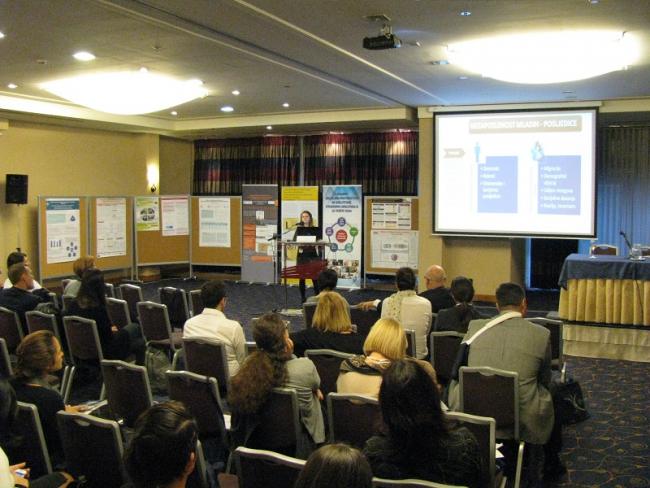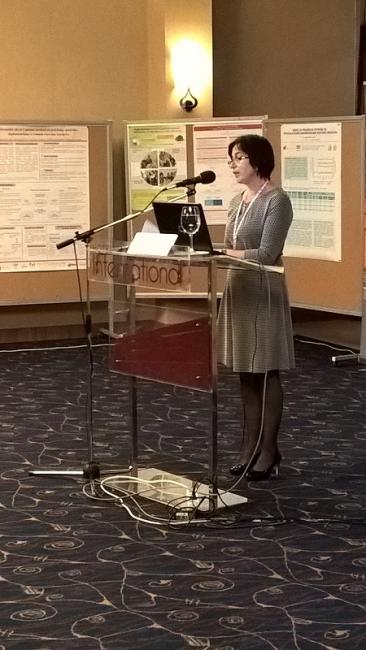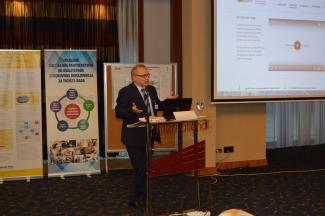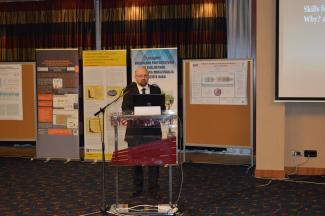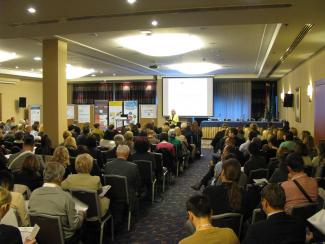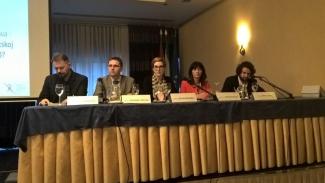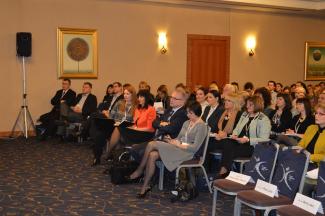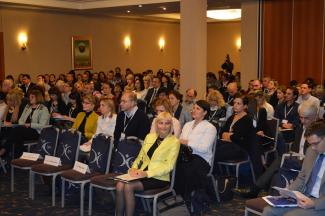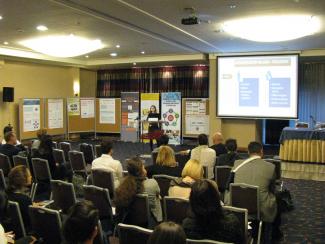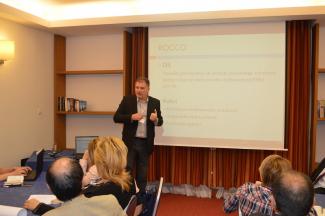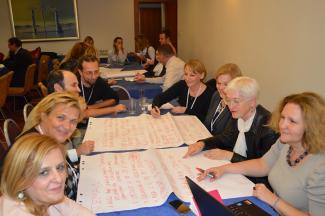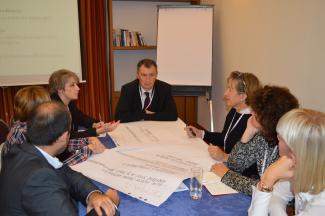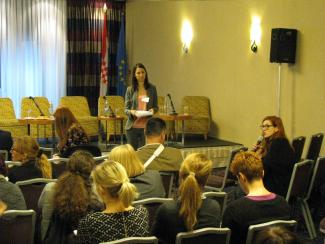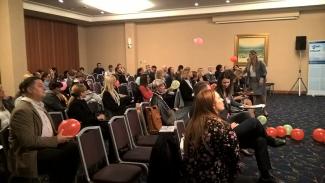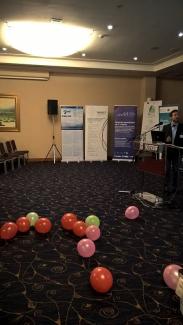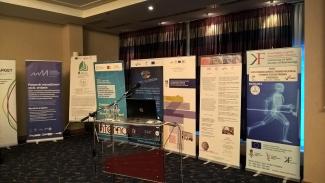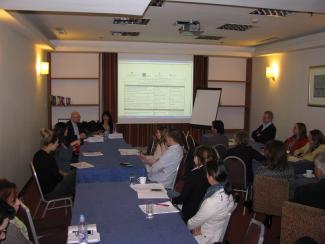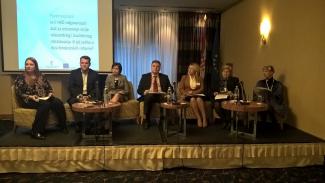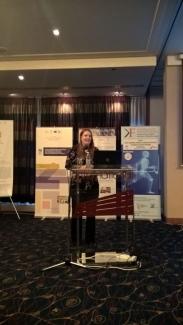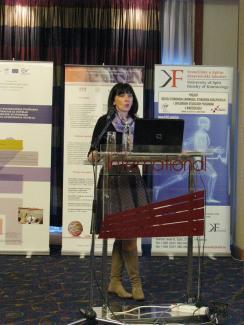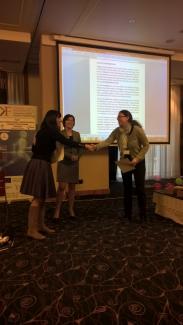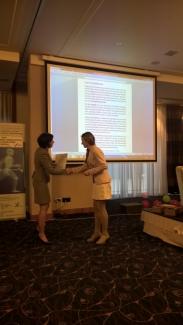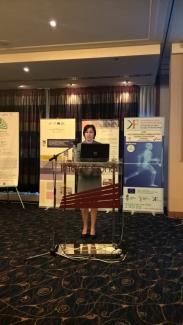The conference was opened by Professor Ružica Beljo Lučić, PhD, President of the National Council for the Development of Human Potential (NCDHP). Goals of the NCDHP are to make a measurable contribution to the development of the Croatian society based on equality and justice, as well as to improve the competitiveness of the Croatian economy on the global market and to promote balanced regional development and permanent employability of the individual. The NCDHP is a central strategic body of the Republic of Croatia for developing the Croatian Qualifications Framework (CROQF).
Professor Neven Budak, PhD, President of the Special Expert Committee for the Implementation of the Strategy for Education, Science and Technology and Coordination of the Strategies and Activities in the Area of Education and Science, presented the concept and application of the Croatian Qualifications Framework in a wider strategic context.
The conference was opened with the presentation of the forecasting model analysing skills supply and demand on the labour market, developed by the European Centre for the Development of Vocational Training (CEDEFOP) and delivered personally by Mr Vladimir Kvetan, a CEDEFOP expert. By implementing the model, it is possible to obtain information about employment trends across different sectors and about the labour market activity rate, while the application of further models can provide an overview of employment trends across sectors by occupations and qualifications.
The lecture delivered by Mr Kvetan served as an incentive for a panel discussion about the vision of the Republic of Croatia in 2030, during which eminent experts, from the perspectives of their areas of work and professional interests, tried to answer the question “What will Croatia need in 2030?”.
Since the National Council for the Development of Human Potential gives recommendations for national policies on grounds of research and evidence-based policy making, the conference provided an opportunity for young researchers to present their work and encourage discussion about the topics they deal with, while the posters they had composed and then presented at the conference gave a visual representation of the research topics. The authors of the best works were awarded with acknowledgments and monetary prizes as an incentive for further research. Based on the voting cast by the conference participants, “Comparative analysis of measures to enhance employability of young people in selected countries of the European Union”, by Ms Danijela Kidjemet, Master of Economics, was chosen as the best work by the members of the NCDHP. The author received an acknowledgement and a monetary prize in the amount of 7,000.00 kuna gross.
In addition to the endeavors of young researchers, projects funded through the European Union funds, which contribute to the quality and relevance of higher education, also contribute to development policies. Therefore, eight approved projects within the Operational Programme “Efficient Human Resources 2007 – 2013” were presented at the conference, related to the implementation of the CROQF in higher education with the aim of developing occupational standards, qualification standards and study programmes, as well as improving work placement by linking it to the business sector.
The presentation of projects served as an introduction to the panel discussion titled “Is the Croatian Qualifications Framework really an appropriate tool for achieving the vision of relevant and quality education or yet another one in the series of bureaucratic reforms?”
Issues regarding the international dimension of higher education were discussed at the workshop devoted to joint studies and the obstacles that occur in their organization and implementation.
Based on substantive discussions and intensive interaction between the speakers, panellists, young researchers, project beneficiaries and participants, Draft Conference Conclusions were shaped.
The conference was organized within the grant to support European Qualifications Framework (EQF) National Coordination Points (NCP) as part of the Erasmus+ Programme.
-
„Croatian Qualifications Framework: Knowledge and Creativity“ Conference, Hotel International, October 22 and 23, 2015
On October 22 and 23, 2015, at Hotel International in Zagreb, the „Croatian Qualifications Framework: Knowledge and Creativity” conference was held, organized by the National Council for the Development of Human Potential.
Dokumenti
Program HKO konferencije301.86 KB
Prezentacija Cedefop11.18 MB
Što će Hrvatskoj trebati 2030?526.76 KB
Prezentacije istraživača49.48 MB
Prezentacije projekata6.2 MB
Je li HKO odgovarajuci alat....pdf341.99 KB
Plakati radova12.68 MB
Plakati projekata84.29 MB
Zaključci konferencije167.89 KB
